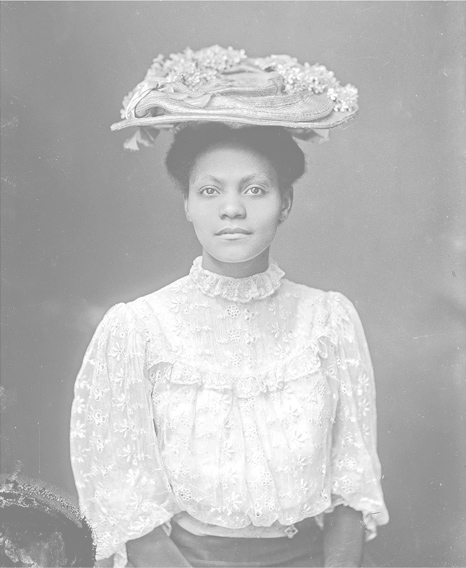Family Photo Day is the first public event in a long-term project that's designed to transform the way we see the history of Charlottesville and the surrounding region. For too long, the stories of the black community have been ignored or told only in terms of racial oppression and the struggle to overcome it. We hope that members of the public at Family Photo Day, and at future events, will help us reveal a more complete picture of our local history. The Holsinger Portrait Project will use the more than 500 portraits of local African Americans to tell different kinds of stories—stories about family and faith, strength and resilience, beauty and grace. We plan to display these Jim Crow-era portraits outdoors in public spaces, in gallery exhibitions, and in a richly detailed website in order to help us all see our region's past, and envision our future, in a clearer light.
Rufus Holsinger came to Charlottesville in the late 1880's, and established a photographic business. His University Studio at 719-721 West Main (where Mel's stands now) soon gained a reputation for first-quality work. Holsinger's photos were made using large glass-plate negatives, a technology that produced richly-detailed, but quite fragile, images (as can be seen in the copies extant today, which have many scratches or places where portions of the image are missing, due to the glass plate breaking).
By the early twentieth century, Holsinger was the leading photographer in town, providing portraits for a wide range of businesses, social groups, churches, and families; that he truly did capture the face of Charlottesville and area at this time is evident in that his clients did include African Americans.
The entire Holsinger Studio Collection of more than 10,000 images is now housed in the Albert and Shirley Small Special Collections Library at the University of Virginia. The African-American portraits comprise a small, yet significant, portion of this archive (numbering about 611). While names are associated with most of the portraits, they are based on who paid for the photograph, not necessarily who is in them. A significant number of the portraits' subjects are therefore unidentified; events such as Family Photo Day will help us to properly identify and name these individuals.
Family Photo Day is part of a community outreach effort by the University of Virginia, the Jefferson School African American Heritage Center, Monticello, and Virginia Humanities. We want to connect the photographs and names of the past with the ongoing story of African Americans in the Charlottesville region; for this, we need the community's help. We've invited the public from all over Charlottesville and Albemarle County to help us identify the people in the portraits and learn more about them. We are also asking people to share their family stories and photos with us, so that we can fill in the gaps in our collective memory and reveal a more accurate picture of African-American life in late nineteenth- and early twentieth-century America.
